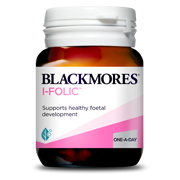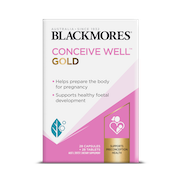- Health hub/
- Resources for Pregnancy and Preconception
Pregnancy & preconception
Beyond the Bump: Prioritising Mental Wellness During and After Pregnancy
A mother's health can impact her child's health in various ways, even before her baby is born.
Nurturing a mother’s wellbeing during and after pregnancy can help ensure she can take care of her baby and handle any challenges.
How does mental wellbeing affect maternal and child health?
Physical and healthy mental wellbeing are important as they affect how you care for your physical health and daily activities.
If not tackled early, stress can lead to ongoing stress. Chronic stress may impact lifestyle behaviours such as sleep, nutrition and exercise, which in turn may affect wellbeing.
According to the Australian Government's Pregnancy Birth Baby website, some research suggests that poorly managed stress could impact your unborn baby's growth and the length of your pregnancy (gestation).
The National Institute of Child Health and Human Development reports that more serious forms of stress can increase the risk of preterm birth and low birth weight.
As a 2024 literature review published in the Molecular Psychiatry Journal reports, prenatal psychological distress is widely associated with pregnancy complications. It also reports that exposure to prenatal maternal stress has been shown by some studies to impact developmental outcomes in the baby. According to the paper, the long-term neurodevelopmental impairments of the child could include a range of cognitive, language, social-emotional, learning and memory, and behavioural problems.
PANDA advises that supporting maternal mental wellbeing may positively influence bonding with your baby. During pregnancy, you can bond with your developing baby by singing, reading, talking, and gently touching your belly. https://www.panda.org.au/articles/bonding-with-your-baby-during-pregnancy
What are some of the common challenges for expectant and new mothers?
Pregnancy
It is very common for pregnancy, especially for a first-time mother, to bring worry and stress. It's when many uncertainties and things may be out of your control. For example, you may fear first-time labour or worry about whether you can take care of a child for the first time or with the children you already have. There are extra responsibilities, navigating work and finances, and relationship changes. Many physical changes, such as body shape, weight gain, aches and pains and morning sickness, can lead to concern.
Other issues could be that the pregnancy was unplanned or that you had a previous negative pregnancy experience. If you lack support, these concerns can be even more challenging.
Post-birth
Aside from labour, an overwhelming experience in itself, it is common for mothers to experience a period after birth known as the "baby blues", typically within the first week of giving birth. Adjusting to having a new baby and all the changes and responsibilities that come with it can also bring many emotional and mental challenges.
It is thought these "baby blues" can also be due to fluctuating hormone levels that happen during birth and soon after birth, according to Pregnancy Birth Baby, which recommends seeing a GP if these feelings are intense and last for more than two weeks.
Some strategies to support maternal mental wellbeing
Learning skills to become resilient, respond to, and manage the challenges that come with pregnancy and motherhood can equip you for motherhood after birth, parenting, and having another baby.Take it easy
Avoid making any drastic life changes at this time, such as changing jobs or moving house. Accept help when offered to relieve the load.
Listen to your body, rest if needed, and lower your expectations of what you can get done compared with what you could achieve before becoming pregnant. For example, you may not be able to do as much housework as you used to, and it’s okay to leave it for a bit so you can take care of your baby.
If you are finding it hard to unwind or relax, often feeling on edge or agitated, experiencing mood swings, or finding it hard to concentrate, look out for other changes. These include feeling sad, often for no reason, losing interest in things that usually excite you, withdrawal from others, and changes in sleep or appetite. If you are experiencing these symptoms, speak with a qualified health professional.
Maintain a healthy lifestyle
Eating a nutritious diet will support your health and your baby's health. Eating enough quality foods will support the growth of your developing baby and provide nutrients for breastmilk to feed your baby once it is born.
Exercise can support mood by encouraging the release of feel-good hormones, which may be beneficial in combating any baby blues that may arise.
Exercise and a balanced diet can also help maintain a healthy weight for a healthy pregnancy and baby development, as guided by your maternal health nurse.
Taking time out to engage in relaxation time or rituals can help you manage stress. For example, you can take a warm bath or practice yoga, which can introduce you to other relaxation methods such as meditation and breathwork. Consult your GP before taking part in yoga.
Sleep will go a long way toward helping you restore energy for looking after your baby, aid relaxation, and manage stress. Try to sleep when your baby is sleeping, for example.
Maintaining a routine to give you some structure yet flexibility for any changes may help you feel a sense of control and reassurance. Include some fun activities.
Make the most of your support system
Maintain relationships with friends and family for emotional support. Access support lines to discuss challenges you may have. During pregnancy, for example, PANDA has a support line, while post-birth, the Parent Line is a 24/7 phone line that you can call and speak to a maternal health nurse about any challenge you may have. For example, if you are having trouble settling your baby, they can help talk you through it and refer you to a suitable service if necessary.
Ensure you go to all your antenatal appointments to ensure your pregnancy is on track, and then all your maternal appointments to monitor your baby's development.
Looking after yourself as a mother can often be overlooked. However, it is the most important thing you can do yourself, as it can affect how well you look after and bond with your baby.
Information, support and lifestyle advice to help you successfully breastfeed.
Learn techniques & troubleshoot common concerns
Build your support team
Rest and hydrate to maintain supply
Develop a breastfeeding friendly diet
Pregnancy and preconception
Get yourself in tip top baby making shape with our 5 step action plan.
Talk to your health care provider
Adopt conception friendly diet and exercise habits
Stock up on supplements
Learn to manage stress
Look at your partner's health and lifestyle
Pregnancy and preconception
Everything to Know About Getting Off Contraception to Conceive
Wondering how your contraceptive might impact any future plans you have around falling pregnant? To help out, we’ve answered a handful of commonly asked questions.
Beyond the Bump: Prioritising Mental Wellness During and After Pregnancy
Feeling overwhelmed? Prioritise your mental wellness during pregnancy & postpartum. Find support, coping mechanisms, & resources for maternal mental health.
Pregnancy and preconception
Blackmores I-Folic™
A combination of iodine and folic acid, both important preconception & pregnancy nutrients.
Always read the label and follow the directions for use. Read the warnings below before purchase.
$24.99
One bottle will provide you with a 5-month supply of these two essential nutrients.
Potassium iodide (iodine 150 microgram) 196.2 microgram
Folic acid 500 microgram
Dosage
- Always read the label and follow the directions for use
- Supplements may only be of assistance if dietary intake is inadequate
- Advise your doctor of any medicine you take during pregnancy, particular in your first trimester
- Do not exceed the stated dose except on medical advice. If you have had a baby with a neural tube defect/spina bifida, seek specific medical advice
- Always talk to your health professional before taking multiple products for pregnancy
- Not to be taken with Blackmores Conceive Well Gold, Blackmores Pregnancy & Breast-Feeding Gold, Blackmores Folate, or other folic acid containing supplements
- If you have any pre-existing conditions, or are on any medications always talk to your health professional before use
- Some products should be ceased at least two weeks before any elective surgery, please confirm with your health professional
Pregnancy and preconception
Blackmores Conceive Well™ Gold
A formulation of essential nutrients to help prepare for healthy conception.
Always read the label and follow the directions for use. Read the warnings below before purchase.
$47.99
Potassium iodide (iodine 150 microgram) 197 microgram
Folic acid 500 microgram
Cupric sulfate anhydrous (copper 1.3 mg) 3.3 mg
Riboflavin (vitamin B2) 1.5 mg
Thiamine nitrate (thiamine, vitamin B1 1.2 mg) 1.5 mg
Manganese sulfate monohydrate (manganese 5 mg) 15.4 mg
Zinc sulfate monohydrate (zinc 15 mg) 41.6 mg
Nicotinamide 20 mg
Ferrous fumarate (iron 24 mg) 75.4 mg
Pyridoxine hydrochloride (pyridoxine, vitamin B6 41.2 mg) 50 mg
Cyanocobalamin (vitamin B12) 50 microgram
Heavy magnesium oxide (magnesium 200 mg) 350 mg
Ascorbic acid 200 mg
Calcium ascorbic dihydrate (ascorbic acid, vitamin C 300 mg) 363 mg
Total vitamin C 500 mg
Selenomethionine (selenium 65 microgram) 161 micrograms
Biotin 100 microgram
Calcium pantothenate (pantothenic acid, vitamin B5 4.6 mg) 5 mg
Dosage
Adults – Take 1 capsule and 1 tablet once a day, or as professionally prescribed. Take with food. Ideally taken up to six months before conception.
Once you fall pregnant stop using this product and switch to Blackmores Pregnancy and Breast-Feeding Gold.
- Always read the label and follow the directions for use
- Additional supplements may be needed when you are pregnant, discuss your individual requirements with your health professional
- Supplements may only be of assistance if dietary intake is inadequate
- Do not exceed the stated dose except on medical advice. If you have had a baby with a neural tube defect you should seek specific medical advice
- Do not take while on warfarin therapy without medical advice
- This medicine contains selenium which is toxic in high doses. A daily dose of 150 micrograms for adults of selenium from dietary supplements should not be exceeded
- Once you fall pregnant stop using this product and switch to Blackmores Pregnancy & Breastfeeding Gold
- Advise your doctor of any medicine you take during pregnancy, particularly in your first trimester. If you are concerned about the health of yourself or your baby, talk to your health practitioner
- If you have any pre-existing conditions, or are on any medications always talk to your health professional before use
- Some products should be ceased at least two weeks before any elective surgery, please confirm with your health professional
- WARNING - Stop taking this medication if you experience tingling, burning or numbness and see your healthcare practitioner as soon as possible. (Contains vitamin B6)
- Contains fish, soya bean products and sulfites
Pregnancy and the Digital Detox
Discover digital detox tips for expecting mothers to reduce screen time, enhance mindfulness, and boost mental well-being during pregnancy.
Pregnancy Series: Focus on Essential Nutrients
Mothers need a certain amount of nutrients to support the healthy development and growth of their baby. Understand your body’s needs to have a great pregnancy.






